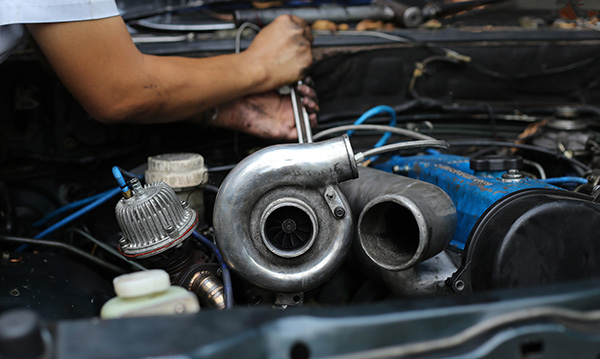
Turbochargers have revolutionized the way we experience driving, providing impressive power and efficiency. However, like all mechanical components, they are not immune to wear and tear. Identifying the early signs of turbocharger failure can save you from major repairs and ensure your vehicle performs optimally. But how do you know when your turbocharger is on its last legs? Here are five common signs to watch out for.
1. Noticeable Power Loss
One of the most apparent signs of a failing turbocharger is a noticeable drop in power. If your car isn't accelerating as it used to, or it feels sluggish, your turbo might not be delivering the required boost. This power loss happens because the turbocharger is no longer able to compress enough air into the engine. This issue is particularly noticeable when driving uphill or trying to overtake another vehicle.
2. Excessive Exhaust Smoke
Another telltale sign of turbocharger trouble is excessive exhaust smoke. When the turbo fails, oil can leak into the exhaust system, resulting in a noticeable increase in smoke. The color of the smoke can vary: blue smoke indicates burning oil, while black smoke suggests an overly rich fuel mixture due to improper air compression. Either way, excessive smoke is a clear indicator that your turbocharger needs immediate attention.
3. Unusual Noises
Unusual noises coming from the engine bay can also signal a failing turbocharger. A high-pitched whining or whistling sound, especially when the turbo is spooling up, often indicates a problem. A loose or damaged turbine blade typically causes this noise. If you hear a loud, metallic clanging sound, it could mean that the bearings inside the turbo have failed, causing the turbine to wobble. Any abnormal sounds should prompt an inspection by a professional technician.
4. Check Engine Light
The check engine light can illuminate for a variety of reasons, and a failing turbocharger is one of them. Modern vehicles are equipped with sensors that monitor the turbocharger's performance. If the system detects an issue, such as low boost pressure, it will trigger the check engine light. While this warning light doesn't always mean your turbo is failing, it's a good reason to diagnose your car to prevent further damage.
5. Increased Oil Consumption
If you find yourself topping off your oil more frequently, it could be a sign that your turbocharger is leaking oil. A failing turbo can have worn seals and bearings, allowing oil to seep into the intake or exhaust systems. This not only leads to increased oil consumption but can also cause more significant engine damage if left unchecked. Monitoring your oil levels and consumption can help catch turbo issues early.
Maintaining your turbocharger and engine will protect your investment. Schedule a visit to Griffin Muffler & Brake Center and let our experts handle all your car care needs.